#i am grantaire actually
Text

Enjolras canonically looks 17
#Les mis#Les miserables#Enjolras#my stuff#red the blood of angry men#my baby girl#my muse#i am grantaire actually#fanart#art#les mis fanart
194 notes
·
View notes
Text
All the pics I could find so far of Hadley Fraser as Marius
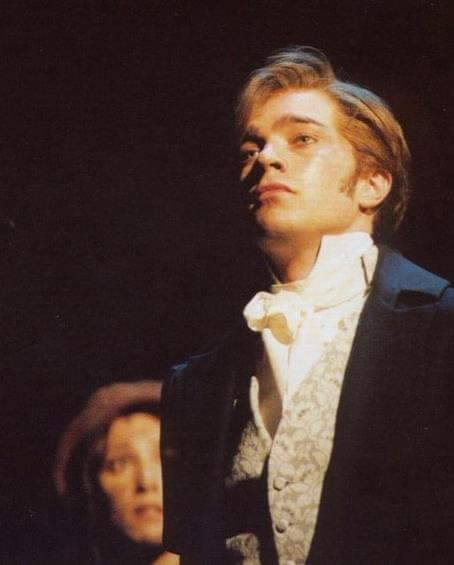
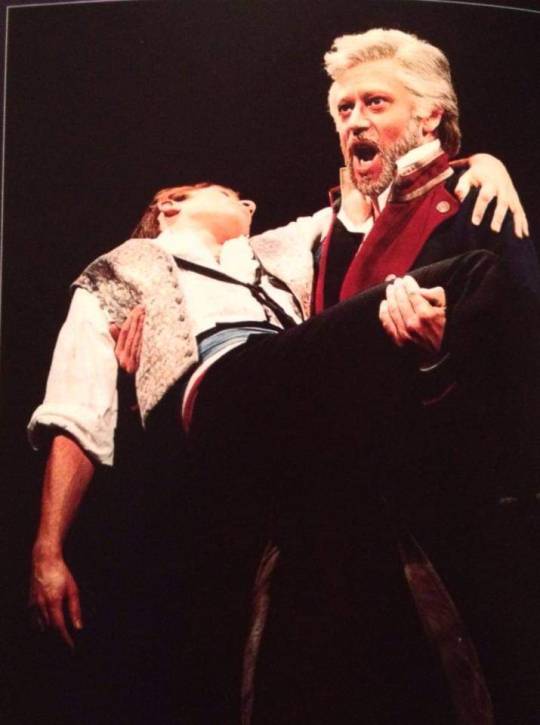
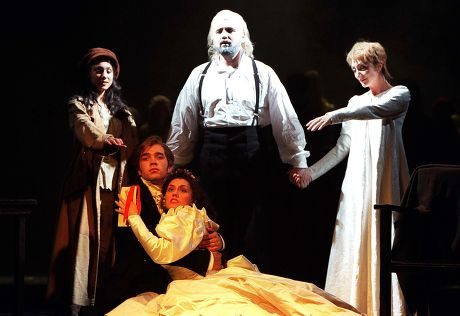
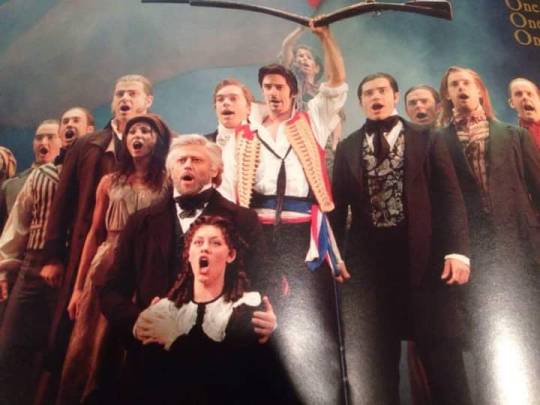
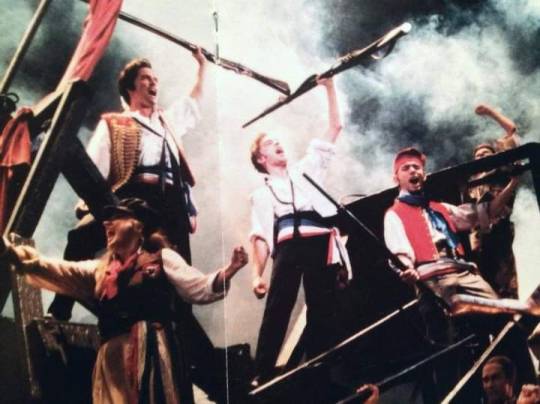
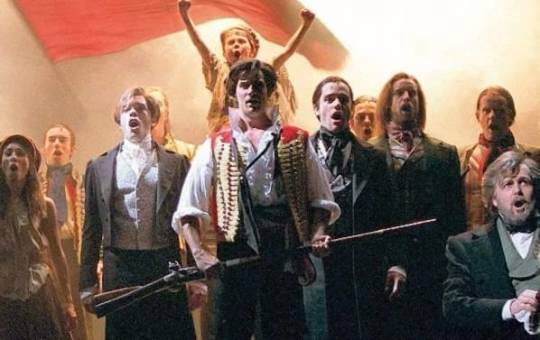
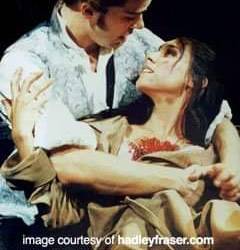
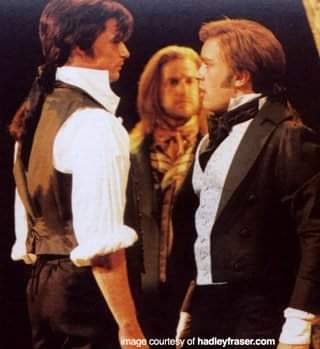
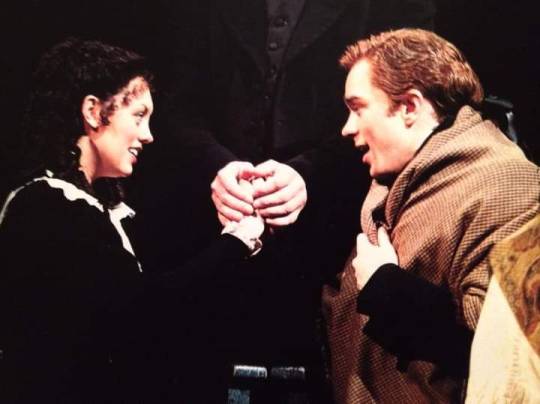
Edit for everyone reblogging just this version: there's more pics in the reblogs from Elerriel!
#HE'S SO CUTE BYE QJDHWJDHHEDSJHDJW#i am particularly fond of the pic of him being carried#he's actually probably my fav Marius just judging from the few low quality audios we have of him 😭😭😭#WHY IS THERE NO BOOTLEG IM SO MAD WHDJWJDHWJDWNDNWNDNSJJWJDJWHDJWJDJSJSJWJS#I LOVED HIS GRANTAIRE but he should've been marius in the 25th anniversaryyyyy#hadley fraser#marius pontmercy#les mis#les miserables#asterrisks
88 notes
·
View notes
Text
#les mis#les miserables#the thing abt these lines is that. i love enjolras and grantaire so much actually and i think these are some of the most cringe things#that i have ever heard. but thats part of the appeal ofc#also they're both actually really real on some level also#txt#polls#also important thing abt 'i am wild' to me is that it's no less cringe in any other translation like. it's so so silly he's so annoying<3<3
73 notes
·
View notes
Text
trying to make a playlist for while im working on my new fic but... none of the songs are remotely happy??? why do i do this to myself
#actually insane#this is my own fault#why am i miserable?#jail for authior#jail for author for one thousand years#les mis#les miserables#les amis de l'abc#les amis#enjolras#grantaire#feuilly
17 notes
·
View notes
Text
worst part of being stressed is that it gives u so much to introspect about and no time to do that introspection
#seeing my worst traits come out and not having the time or energy to process that before having to move onto the next thing 👍👍#can u tell finals week is kicking my ass.#I am the worst most selfish irresponsible immature person on earth + I will never be able to function in society#+ I will never be loved how I want + that's good and right bc it would be asking far too much + in fact it's immoral for me to want it#+ being unable to function is actually a moral failing bc it's not just hurting me but everyone around me#+ it's repulsive to them and it should be bc it's a morally repugnant trait#+ thinking this way is just another example of my self-centeredness and laziness and unwillingness to take responsibility for my actions#+ I resent these things abt myself but I'm not willing to put in the work to change them + that makes me the worst kind of person#omg this is soooooo grantaire core I'm so grantaire coded rn#anyways. time to go study for my math test tmrw :)#vent
3 notes
·
View notes
Note
idk anything abt le mis but im glad ur enjoying it mx i hope it is fun i hope u r enjoying ur le mis guys the guys from le mis<3 (still doesnt know anything abt le mis very obvioudly GFGHGD)
i mean. neither do i to be fair SHSBXJ
#i am enjoying enjoying them despite knowing truly nothing like. idk why its so funny to me to act as if i know les mis while.. not knowing#like. ive decided grantaire is so me but enjolras is my fave. ive decided i love cosette. idk whats next#i need to choose one of les amis that i rlly dont know and decide to love them. uh. im gonna go w… jehan……… yes why not#mewtuals#castle.answers#until i actually get into les mis (i will never have that kinda time) this is what ill do
2 notes
·
View notes
Text
Apparently a sleepless night spent crying over poetry and romantic yearning leads to some major Vibes.
Its ok tho, I dressed cute to make up for it and I’m gonna treat myself to a coffee shop date after work. ✌🏻
#actual blog post. what?#I am a Grantaire yearning for an Apollo of my own I think#in like a less tragic kinda way lol
2 notes
·
View notes
Conversation
me: I never make any sad vids, I want to make a hella sad vid
me after 5 minutes of working on my les mis vid: *sniffle* I just... *sob* I just need a little breather
#vidding#also i'm trying to condense a 7 minute song down to 3#and to use 4 different adaptations#so it's also me after 5 minutes going: this i hard why did i name the clips the way i did#why am i doing a pov switch mid song#(it isn't actually a pov switch but it does switch from grantaire looking at enjolras to grantaire looking at grantaire)
1 note
·
View note
Text
I saw Les Mis live for the first time the other weekend, and the surprising standout performance for me was Kyle Adams as Grantaire. He is a performer who has obviously read the Brick, and uses all of his stagetime to convey as many aspects of Brick Grantaire as possible; he also reads Grantaire’s love for Enjolras as explicitly gay and romantic (there’s a moment I’ll talk about later where he blows him a kiss.) I was actually surprised by how much he managed to convey in so little time!
Some highlights:
When Enjolras is asking for a “report on the strength of the foe,” Grantaire enthusiastically raises his hand, posturing and gesturing wildly at himself to volunteer. Enjolras casts him a disdainful look like “anyone elSE?” And that’s when Javert jumps in with his “I can find out the truth.” It’s like a small silent version of the Barrier du Maine scene; Grantaire was really giving that “je suis farouche.”
In general, there was this repeated Thing where Grantaire obnoxiously acts out in order to get Enjolras’s attention, and then flails around uselessly whenever he actually has it. Very in character.
Grantaire often goes on uproariously and jokingly about love; then, whenever he’s approached by Enjolras, he doesn’t seem to understand what to do about it.
Whenever Enjolras is singing dramatically about revolution— during Red and Black, Do You Hear the People Sing, and One Day More— Grantaire gazes at up at him with a amazed, awed, and overwhelmed look on his face, sometimes with his hand on his heart.
During Red and Black, there’s a moment where Grantaire “jokingly” caresses Enjolras’s face. Then during Do You Hear the People Sing, Enjolras passes Grantaire by and casually caresses his face; Grantaire acts a bit stunned, as if surprised Enjolras would deign to touch him. Finally, there’s a dramatic “reassuring face-caress” during the gay verse of Drink with Me.
There’s a repeated thing where Grantaire keeps offering Enjolras a bottle of wine, half-jokingly, only for Enjolras to reject it. In the last verse of Drink with Me, after Grantaire finishes his verse and walks away, Enjolras finally accepts a bottle of wine (though another character gives it to him.)
Iirc Grantaire doesn’t join in the fighting initially; he just stares at Enjolras in awe, and then mainly stands by Javert to “guard” him. I mainly mention this because I think Javert and Grantaire are a very funny duo, just as a concept. I think “being forced to listen to Grantaire monologues” is an excellent punishment for Javert.
During Marius’s verse of Drink with Me, Enjolras climbs to the top of the barricade, standing in the light. Grantaire is at the bottom in the shadows, attempting to sleep. As Marius sings about his love for Cosette, Grantaire raises his bottle to Enjolras, and then blows him a kiss. It’s very “let me sleep here until I die here.”
Finally, Grantaire has his "book death." After he spends the entire musical on the fringes being skeptical, he joins Enjolras in the final battle. He climbs up the barricade and says (I was close enough to hear) "Long live the Republic! I am one of them."
I'm genuinely impressed by how much of the Brick characterization he managed to convey with so little time-- some ad-libbing and lots of silent acting moments! It really gave me a greater appreciation of what a strong performer in a musical can do, and how they infuse even 'smaller' parts with lots of nuance and personality.
462 notes
·
View notes
Text
Mystery of "Night begins to descend upon Grantaire" solved (continuing this post)
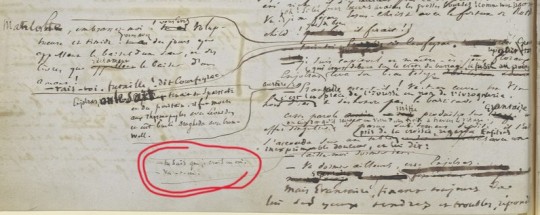
@everyonewasabird @pilferingapples So because I am insane and couldn't sleep I went through hundreds of pages of the manuscript on Gallica and finally found the text and it's CANON. What Grantaire said with an "indescribable sweetness" was not "let me sleep here", it was "you know I believe in you" (tu sais que je crois en toi) but Hugo wrote it on the margin of the page and so faintly I almost missed it but thankfully I spent 1 hour scanning every centimeter of this page because I'm nuts.
Also if anyone wonders (no one) Grantaire said "you'll see" only once, not twice as some translations show, and here is the proof:

Two remarks:
At first the "you know I believe in you" seemed random to me, because I was not used to it (since my version doesn't have it). Then I realized that ACTUALLY it has to be there. When Enjolras says "you're incapable of believing, of thinking, of wanting, of living and of dying" he's referring to two things Grantaire said : that he believes in him, and that he's willing to die there, for him. "Believing", and "dying" are the beginning and the end of his phrase. He's wrong in both, as we know. Grantaire is capable of believing (in Enjolras) and of dying in the barricade. The text has a perfect harmony this way.
What is driving me absolutely crazy is that Hugo added probably the two most meaningful exchanges E x R had on the margin as an afterthought, as a correction, and I'm talking about "you know I believe in you" and "you'll see". Like he wrote the draft and then was like, that's mid. I'm not going for mid, let me throw a phrase there to give it an extra oomph that will make tumblr girlies lose their minds and their sleep 200 years later. You don't get it, he was working for us. First incident of fanservice recorded in the history of human kind - and the editors MISSED IT. CRIMINAL BEHAVIOR
#lm 4.12.3#les miserables#the brick#enjolras x grantaire#enjoltaire#victor hugo#i mean of course it wasn't fanservice it had an actual thematic significance and was essential for their arc etc etc BUT ALSO#he must have known the effect these words would have on people
205 notes
·
View notes
Text
still baffled that “be easy”, “be serious” “i am wild”, “permets tu”, and just the entirety of grantaire's introduction is actually in the brick and isn't from fanfiction
762 notes
·
View notes
Text
Enjolras, trying to be comforting: It’s okay, Grantaire, we’ve all done things we aren’t proud of! I was thirsty and realized I left my water bottle at home so I actually bought a single-use plastic. And I just feel so bad, ya know?
Grantaire: I’m… too hungover for this…
Enjolras: And a few weeks ago I bought an avocado for breakfast without knowing where it was sourced from, so…
Grantaire: Holy shit…I am definitely a different level of fucked up than you are.
#and then Enjolras gets scared thinking Grantaire means that he’s even worse#and he believes it…..lol#les mis#les miserables#les amis de l'abc#enjolras#grantaire#les amis#enjoltaire
209 notes
·
View notes
Text
This is probably the most cruel question I could ask this fandom but
** Marius is not in this one because he actually survives, y'know
*** I wanted to edit this to fix a typo but accidentally deleted it, so here I am posting it again. Do your worst.
#les miserables#les mis#grantaire#enjolras#combeferre#courfeyrac#joly#bossuet#bahorel#feuilly#jehan#eponine#gavroche
226 notes
·
View notes
Text
characters in les mis (musical) ranked on how good their introductions were:
jean valjean: 9/10 he actually says his name and like . conveniently gives us his backstory while talking to javert which was nice
javert: 10/10 literally says his name and then says "do not forget my name" so forcefully i managed to not forget his name immediately so that was good
the bishop: 5/10 solid but not enough context. could've used a whole five minute song about only him beforehand tbh (kidding i swear)
fantine: 9/10 she does have people say her name which is good, she doesn't say it directly but like she does fill in her situation well. also i would feel bad for giving her a low score since her intro is literally her having a horrible time
bamatabois: 3/10 he never says his name and he's a huge asshole . only gets a three because it conveyed his character well + javert was there. but he also gets a three because i hate him
fauchelevent: 10/10 because. it's the runaway cart man . best song in les mis. also they do say his name so it works
cosette: 10/10 her name is said over and over again before she's even onstage + her introduction really shows the bleakness of the situation she lives in with the thénardiers
mme thénardier: 8/10 she doesn't say her name but it is a good introduction nonetheless . 8/10 instead of 9/10 because it isn't like. my favorite favorite but it is good
eponine: 6/10 controversial but sorry. i feel like they introduce us to eponine as kind of a brat (with her name which is nice) and even maybe as helping her mother directly to hurt cosette whereas we don't get a good enough reintroduction to her character in act two that gives us a better idea of her character as someone who's arguably just as hurt by the thénardiers as cosette. it's still okay though
m thénardier: 10/10 they say his name and then immediately he gets master of the house? it's a good introduction to the fact he's a big old thief and it's also kind of a bop. no notes
gavroche: 10/10 his name is in his first line. and it gives you a very good impression of him. i don't have any notes alright . i mean they kinda give the impression he's not related to thénardier but i can't fault them for not including that since it's not a HUGE plot point
enjolras: 2/10 i genuinely do not think anyone ever adresses this guy by name. i only remembered he was supposed to be there after i watched the play and then had to hunt down the actor's name in my playbill so i could see if i remembered him. like he just felt like another member of les amis tbh. two points because at least he's still characterized well
marius: 5/10 we hear his name from enjolras and because we get no context for his life before this point he feels so damn uninteresting... like all we get is the "ooh marius is in looove" without ANY context of his life outside of that. literally just there to fall in love with cosette and it shows
les amis de l'abc: 4/10 i am grouping them together because they literally get NO distinguishing qualities from each other in their introductions. grantaire making fun of someone is alright for things grantaire would do but like. can we not give that to courfeyrac?? why are all of them such non characters in this introduction?? like at least we get a few name drops from enjolras but i am just not really a fan. courfeyrac should be in here more since marius lives with him but i guess that doesn't matter because marius had his whole backstory surgically removed to make room for the brick to not be a million year long play. whatever. probably why lesgle gets nothing either despite the fact he introduced marius to les amis. didn't know this got on my nerves so much
patron-minette: 5/10 i mean. it's AN introduction but also to be fair i can't get mad too much since they're not major characters+ they are kinda interchangeable in the end. only montparnasse got a name drop but they did also keep my favorite eponine moment largely intact so. eh. whatever they get a five for being mediocre
#les mis#les miserables#these are just my opinions and they're very biased (see the fact that fauchelevent gets a 10/10)#but i'll put em out there lol
107 notes
·
View notes
Text
A list of my personal head canons from the Modern AU E/R les mis fanfiction I am writing that no one asked for but I'm hoping will persuade you to read it once I publish it
Courfeyrac started following Enjolras around in seventh grade and that is the only reason they became friends in the first place
Grantaire once bullied Enjolras for the lack of eye contact he makes and now Enjolras stares uncomfortably into peoples eyes when he wants them to know he is listening
Touch starved/touch avoidant Enjolras
Marius is actually fucking stupid but still we love and treasure him
Ferre had to sit everyone down and explain they weren't allowed to touch Enjolras, and then everyone got jealous that they didn't have their own things and accidentally they created a rule system
Nonbinary Jehan obviously
Enjolras is a lightweight
Asian Eponine
Courfeyrac is doing it with Ferre AND Jehan AND Marius bc u can't force me to choose
Autistic Enjolras
Joly has OCD that is based directly off of my OCD
Combeferre speaks in riddles
Courfeyrac's favourite band is ABBA
LITERALLY everyone is aware that E and R are in love except for them
Courfeyrac has been actively trying to get them together for two years
JOLY AND R BEST FRIEND SUPREMACY
I know this is irrelevant to the majority of people but I spent literally a year of my life in psychosis and somehow this is all I have to show for it so let me know if u would read my fanfiction HAHAHAHAHA i went crazy
#les miserables#les mis#enjoltaire#grantaire#enjolras#les amis#exr#courfeyrac#combeferre#courferre#eponine#jehan prouvaire#bossuet#bahorel#cosette fauchelevent#gavroche#feuilly#joly#marius pontmercy#marisette#courfius#courfeyrac x jehan
118 notes
·
View notes
Text
Today, as a treat, I am going to walk on well-tread ground and rant about how Grantaire symbolizes the People of France. And how it is this that makes this chapter so sublime.
Three chapters before this one, Hugo speaks about how Revolution does not always find a welcome audience. How, without the People. an emeute is just that. It may have loft ideals attached to it, but it must fail. If the people aren't ready, if they lock their doors and rail at the revolutionaries outside in fear and apathy and anger, then nothing can be done.
Hugo admits that this is natural. We must let humans care about their own lives and not just the future. All of this can be handled, as long as in the end Progress continues.
"A people, like a star, has the right of eclipse. And all is well, provided the light returns and the eclipse does not degenerate into night. Dawn and resurrection are synonyms. The reappearance of the light is identical with the persistence of the self." [5.1.20]
This is reflective of Grantaire's apathy, his defining trait as a nihilist. It also reflects Hugo's implication that this is not Grantaire's natural state of being. Remember:
"Besides Enjolras, Grantaire became someone again." [3.4.1]
Not only does this tie Grantaire's existence inextricably with the Revolution, but it implies that this existence is superior, is more natural than his current one.
Grantaire also has more interactions with the People than the rest of les Amis do. See when he was meant to stir up revolutionary ideals and instead went to play dominoes. Yes he failed, but he also reflects the prevailing thought. France was not ready for a revolution. Enjolras ignored this. Lofty ideas could not reconcile themselves to the reality.
All this paints a very bleak picture of course. And yet, in Grantaire's death we get that undeniable hope, which makes it all so beautiful.
We, as real people reading this book, understand that Grantaire is probably still drunk. Yet Hugo impressing upon, insisting upon Grantaire's clarity is so crucial. This, at the moment of his death, is the most lucid Grantaire has been.
Another thing that strikes me, is that thought Grantaire asks permission to die with Enjolras, he seals his own death warrant before doing so, by crying out 'Vive la Republique.' He doesn't actually ask permission to join the movement.
When the People rise, they will do so spontaneously. That crucial ingredient that is missing amongst the population has been lit in Grantaire, and it is a sign of what is to come, it is hope. He's leading the pack with his singular death, and like he measured the mood beforehead, his death can be (and to me is) read as an omen of what is to come. The eclipse - in Hugo's words - will end.
Of course, asking permission to die with Enjolras is also crucial. Not only because of the poetry of them being narrative foils, but because it works as a surrogate for the people of Paris acknowledging the bravery of those who push forward towards Progress while they refuse to budge. Again, as Hugo writes:
"However that may be, even when fallen, particularly when fallen, august are the ones who, all around the world, with eyes fixed on France, struggle for the great work with the inflexible logic of the ideal; they give their life as a pure fit for progress; they accomplish the will of Providence; they perform a religious act." [5.1.20]
Through Grantaire's death, the People come out of their fear and recognize this. Not literally, but in spirit. And if not to all of us, then to Enjolras.
Because Enjolras is, of course, crucial to this reading. Speaking of Grantaire as the People when he is merely one of many characters who are the People, it's important to ask for whom is he? Because he's certainly not for Valjean. Or Marius. Or Cosette. Or Javert. Or even the National Guards or the King or perhaps not even to the audience (if you think I'm overdoing it I respect it). But he is to Enjolras.
Enjolras is stoic throughout the whole ordeal. He speaks of glory in death. He is still devoted to his mistress, Patria. And yet his ideals have been shattered. The People were not ready. The Revolution will not come. He will die bravely, but he will have failed.
But then Grantaire stands up and says he's with them and requests permission to die by Enjolras' side.
And in that moment Enjolras' convictions are justified. If someone who has been the object of scorn, who has been apathetic, who has done little at all except annoy Enjolras and fail to stir up revolutionary thought; if Grantaire can rise up and die with him, then others will too. Perhaps not now, but in the future.
Grantaire becomes someone again when he dies next to Enjolras. And someday the people will rise.
#for every barricade that falls one hundred will rise tomorrow I'm sorry I'm so emotional lol I hope y'all like this absolute sea of words#les miserables#les mis letters#enjolras#grantaire#enjoltaire#1.5.23#bern speaks
114 notes
·
View notes